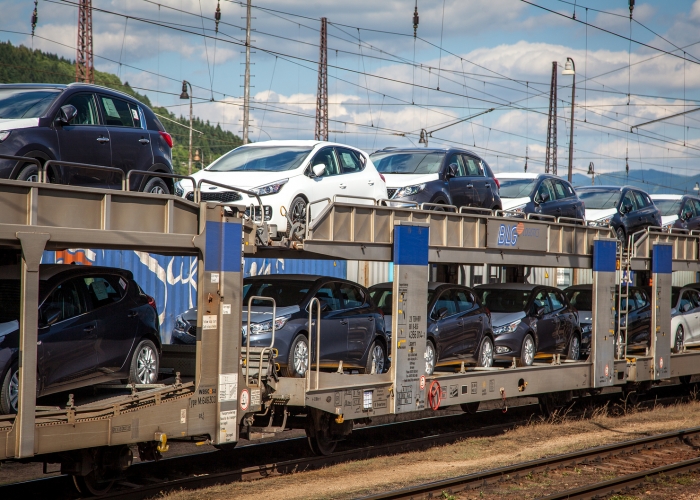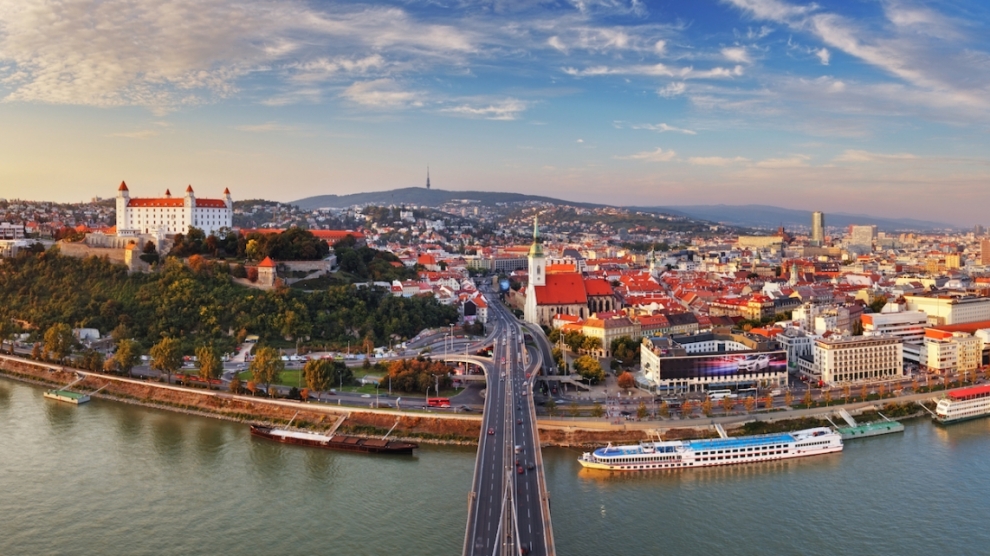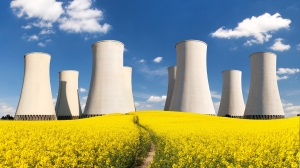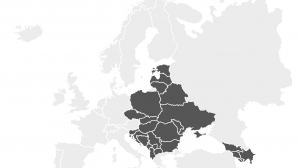Mixed messages in the world of Slovakian business. While according to the latest figures published by the Business Alliance of Slovakia (PAS) the country’s business environment rating has fallen to 49.6 points (less than half its original starting value), in better news the World Economic Forum’s 2017-2018 Global Competitiveness Report (GCR) ranks Slovakia 59th, up six places on last year. Slovakia has alas dropped six places, from 33rd to 39th, in the World Bank’s Ease of Doing Business Report.
So what makes the Slovakian business climate so fluctuant?
“The real problem right now is the quality of state institutions and their administration of public life,” PAS Executive Director Peter Kremský tells Emerging Europe. “That’s the area where business leaders have the most concerns. Corruption, bureaucracy and tax administration are the most painful burdens for companies doing business in Slovakia.”
GDP Growth
According to the National Statistics Office, in the second quarter of 2017 GDP rose by 3.3 per cent compared with 2016.
“Slovakia has improved on many fronts, especially when it comes to the macroeconomic environment and technological readiness,” Mr Kremský adds.
“Economic growth in the second quarter was driven mainly by the services sector (a contribution of 2 percentage points), as household consumption accelerated,” Slovakian Minister of Finance Peter Kazimir tells Emerging Europe. “Despite buoyant foreign demand, industrial production on the other hand has slowed down due to the automotive, electronics and optic sectors. This stems from several temporary factors, including the fact that the life-cycle of several car models produced domestically came to an end.”
Administratively, the bureaucratic burden has been lessened slightly, but more needs to be done.
“The government has made some small changes and improvements in administrative burdens and tax regulations, although in the GCR our score increased only slightly, from 4.28 to 4.33,” Peter Kremský adds.
“Overall, the regulatory environment has been improving, although the pace is sometimes frustratingly slow,” Juraj Gyárfáš, a senior associate at Allen and Overy, a law firm. “The greatest challenge is to increase business confidence in the judicial system. In our practice, we often encounter excellent judges, but unfortunately we also come across situations that raise serious doubts. There is a very low level of confidence in the judicial system,” he tells Emerging Europe.
Driving Cars
Despite the lack of trust in the judicial system, foreign investors remain keen on Slovakia. The Slovak Investment and Trade Development Agency (SARIO) has helped almost 500 investors over the last 15 years including big names such as Kia, Samsung, T-Systems and Jaguar.
” Slovakia is one of few countries in CEE which has adopted the euro, providing more opportunities for doing business with western Europe,” the CEO of SARIO, Robert Simoncic explains. “The share of high added-value projects is increasing significant, and Slovakia has recently become a well-known destination for innovative companies.”
Electrical engineering is one of the most important sectors, with one in every five LCD screens imported to the EU being made in Slovakia. “A common prerequisite of all sectors in Slovakia is research and development, and we have registered increased interest from investors to relocate their new R&D centres to Slovakia,” Mr Simoncic adds.
Thanks to a long tradition in the field of mechanical engineering, the most productive industry in Slovakia is still the automotive industry, accounting for 44 per cent of the country’s industrial output. Kia Motors is the only automaker in Slovakia to produce its own engines.

“For over a decade, Kia Motors Slovakia has been making a difference in Slovakia, the Zilina region and community on numerous levels. We are among the largest producers, exporters, and tax payers in the country, and we have created 20,000 jobs,” Anton Ondrej, HR director of Kia Motors Slovakia tells Emerging Europe.
“We considered a few other countries in the region but decided on Slovakia due to its central location, the stable political situation, NATO and EU membership, the flat 19 per cent income tax rate at that time and he country’s long experience in engineering,” he explains.
Road to Nowhere
Nevertheless KIA Motors still faces challenges. “Unfortunately, Slovakia does not have a complete network of highways, which is crucial for us. There is one particular piece of highway on the D3 -heading towards the Czech Republic and Poland — that will not be finished until 2026. It is crucial for us, as we export over 1000 engines daily to our sister company Hyundai Motor Manufacturing in the Czech Republic. The other big challenge is the lack of qualified workers. Employers in the automotive industry, among others, have issues with finding qualified and skilled labour in sufficient numbers,” Mr Ondrej adds.
In addition to this, “the EU’s economic sanctions against Russia remain in place, which is why a continuous negative effect on the purchasing power of the local population can be expected to persist. Any depreciation of the British pound in the near future may have a negative impact on our results,” he says.
Finding skilled labour represents does indeed pose a major problem for all sectors. According to the National Union of Employers (RÚZ) the education system is churning out graduates in professions that employers are not altogether interested in.
“As the economy grows and unemployment declines our company has to face the problem of shrinking availability of qualified workers,” Martin Mittner, country manager of Nestlé Slovensko tells Emerging Europe.
Nestlé entered the Slovak market in 1992 by privatising a significant state-owned food producing factory. Since then Nestlé has grown and extended its product portfolio while other food producers did not survive the immediate post-communist transition period.
“The major challenge is to anticipate trends and consumer preferences, because Nestlé is a company that strives to enhance the quality of life and to contribute to a healthier future. We innovate and improve our products to offer consumers a healthier choice,” Mr Mittner adds.
Migrants Not Welcome?
“I cannot accept that in some parts of Europe, in Central and Eastern Europe, people are sold food of lower quality than in other countries, despite the packaging and branding being identical,” said European Commission President Jean-Claude Juncker in his most recent State of the Union speech.
He was referring to the different quality of products sold across the EU. Despite the problem first being raised many years ago, up to one-third of EU countries still have to put up with different products, according to Slovak Agriculture Minister Gabriela Matečná.
Slovakia recently completed a second round of testing on a number of food products, confirming that the situation has not improved a great deal. Of 33 supposedly identical products bought in Slovakia and Austria, testing demonstrated that nearly one half displayed differences.
And allegedly poorer quality food is not the only issue that irks Slovaks. Together with Hungary, Slovakia is one of the fiercest critics of the migrant quotas approved by the EU Commission. It is now more than a year since Slovak Prime Minister Robert Fico called the migrant quota system “politically dead.” According to the EU-wide agreement signed in 2015, Slovakia would have had to take in just 802 people. Even when added together with the Czech Republic it has taken in only a paltry 28.
And yet perhaps the ice is melting.
“For many reasons, the government’s priority is to join the ‘core’ of the EU, led by Germany and France,” says Juraj Marušiak, senior Research Fellow at the Slovak Academy of Sciences. “Slovakia has therefore adopted a more conciliatory rhetoric on the migrant issue than Hungarian Prime Minister Viktor Orbán.”






[…] necessarily known for producing world-leading tech startups, but both the Czech Republic and Slovakia are known for strong, export-oriented manufacturing sectors. Greece’s most important industry is […]